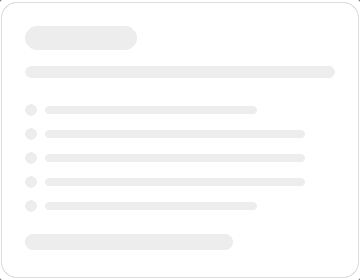Is torfinder.net Safe?
Trusted by WOT
Website security score
35%
Is this website claimed?
No
Community reviews
★ 2
WOT’s algorithm
41%
Child Safety
N/A
What does the community say?
Leave a review










Share your feedback and help the communityReviews must consist of at least 15 charactersChoose the tags that best describe this website
Malware or Viruses
Poor customer service
Phishing
Scam
Potentially illegal
Misleading or unethical
Privacy Risk
Suspicious
Hate, discrimination
Spam
Potential unwanted program
Ads / Pop-ups
Adult Content
Incidental nudity
Gruesome or shocking
Cancel
Post Review
2









Based on 2 reviews
Sort by:
Newest
A magnet link should look like this (for example):
magnet:?xt=urn:btih:3e0c96e7fdbccae2cb02436aa8d2841e4a5e1452&dn=WoT+0+6+2+8&tr=http%3A%2F%2Ftracker.openbittorrent.com%2Fannounce
NOT like this:
*****
Cursory examination of the HTML reveals this "magnet link" to be identical to the sponsored download, which includes PUP/possible malware:
;<a href="http://liversal.net/v244?product_name=WoT+0+6+2+8&installer_file_name=WoT+0+6+2+8&magnetlink=magnet:?xt=urn:btih:3e0c96e7fdbccae2cb02436aa8d2841e4a5e1452%26dn%3DWoT+0+6+2+8" rel="nofollow" class="ddll_m" title="Magnet link"> ⇝ Magnet link </a>
;<a href="http://liversal.net/v244?product_name=WoT+0+6+2+8&installer_file_name=WoT+0+6+2+8&magnetlink=magnet:?xt=urn:btih:3e0c96e7fdbccae2cb02436aa8d2841e4a5e1452%26dn%3DWoT+0+6+2+8" rel="nofollow" target="blank" class="ddll" title="sponsored magnet"> ↯ Direct Download </a>
Disguising sponsors as magnets was the case in every example I looked at before blocking this site.
Helpful
Avira Internet Security has blocked a TR.AVkill here!!! AVOID THIS SITE
1
Check If You’ve Been CompromisedConnect with Google to scan your browsing history.By signing in, you agree to data collection and use as described in our Terms Of Use and Privacy Policy
Connect with Google
As seen on

About WOT
We reviewed more than 2 Million website and counting. WOT is a lightweight extension designed to help you browse quickly and securely. It will clean your browser, speed it up, and protect your private information.Is this your website?
Claim your website to access WOT’s business tools and connect with your customers.Claim This Website
This site uses cookies for analytics and personalization. By continuing, you agree to our cookie policy.
Accept
